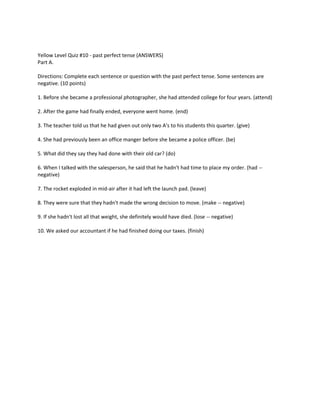The document provides examples of irregular verbs in English and their past tense forms, as well as examples of different types of sentences:
- It lists many common irregular verbs and their past tense forms to illustrate how the form changes between the base and past tense (e.g. bake - baked, catch - caught).
- Examples are given of simple sentences containing subjects and verbs.
- Compound sentences joining two independent clauses with coordinating conjunctions like "and" are shown.
- Complex sentences containing both independent and dependent clauses are defined, and examples provided of dependent clauses preceding and following independent clauses.
- Periodic sentences beginning with dependent clauses are noted as being effective for building up to the
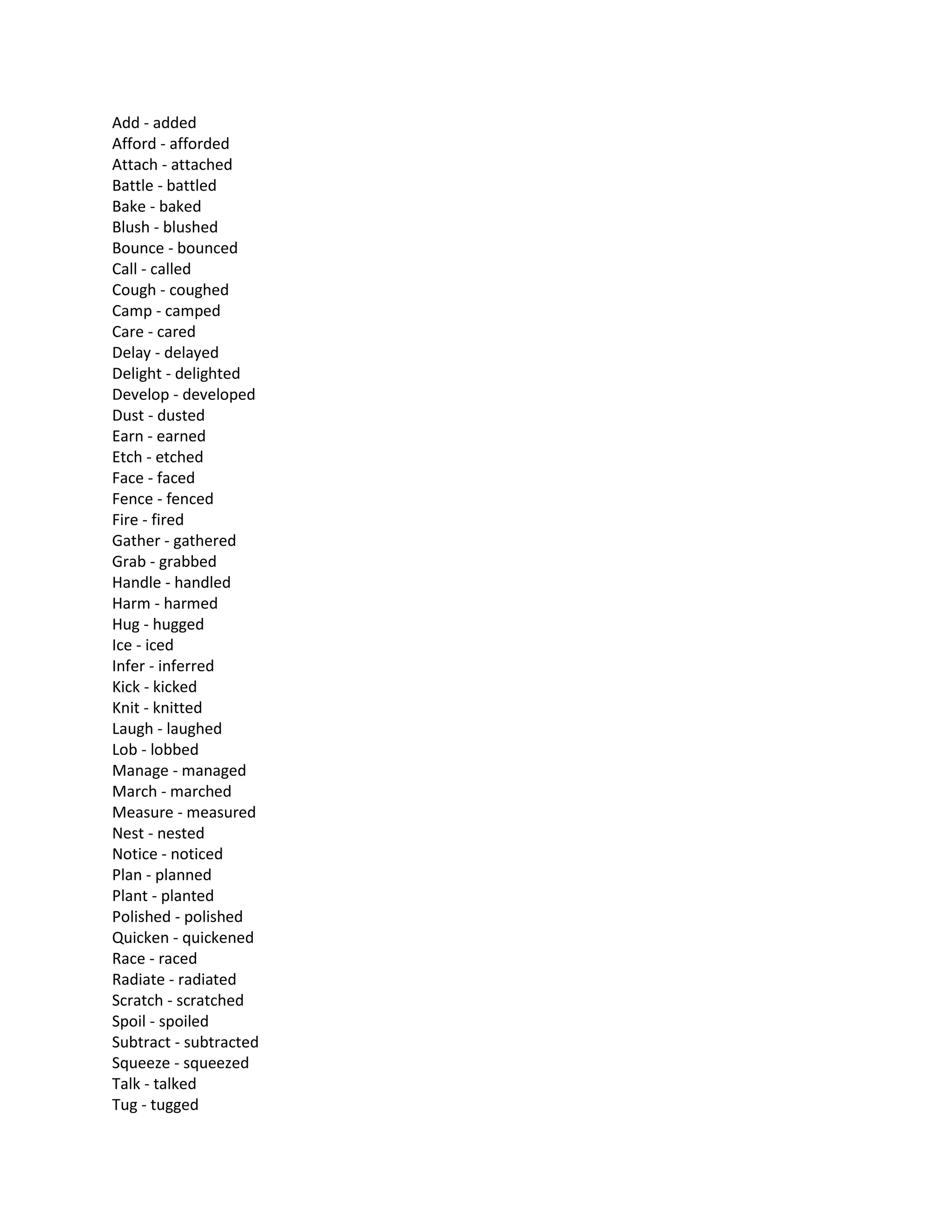
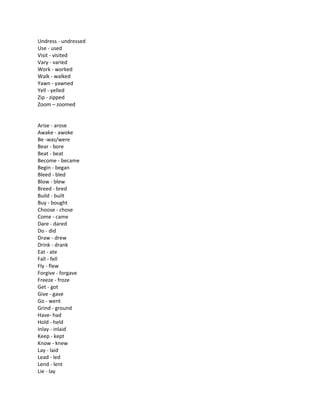
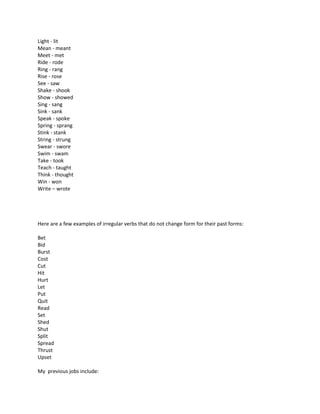
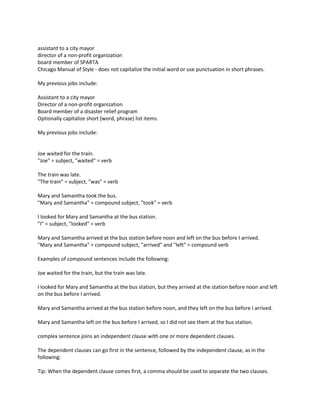
![Because Mary and Samantha arrived at the bus station before noon, I did not see them at the station.
While he waited at the train station, Joe realized that the train was late.
After they left on the bus, Mary and Samantha realized that Joe was waiting at the train station.
Conversely, the independent clauses can go first in the sentence, followed by the dependent clause, as
in the following:
Tip: When the independent clause comes first, a comma should not be used to separate the two clauses.
I did not see them at the station because Mary and Samantha arrived at the bus station before noon.
Joe realized that the train was late while he waited at the train station.
Mary and Samantha realized that Joe was waiting at the train station after they left on the bus.
Complex sentences are often more effective than compound sentences because a complex sentence
indicates clearer and more specific relationships between the main parts of the sentence. The word
"before," for instance, tells readers that one thing occurs before another. A word such as "although"
conveys a more complex relationship than a word such as "and" conveys.
The term periodic sentence is used to refer to a complex sentence beginning with a dependent clause
and ending with an independent clause, as in "While he waited at the train station, Joe realized that the
train was late."
Periodic sentences can be especially effective because the completed thought occurs at the end of it, so
the first part of the sentence can build up to the meaning that comes at the end.
Beginning Sentences with "And" or "Because"
Should you begin a sentence with "and" or "but" (or one of the other coordinating conjunctions)?
The short answer is "no." You should avoid beginning a sentence with "and," "or," "but," or the other
coordinating conjunctions. These words generally are used to join together parts of a sentence, not to
begin a new sentence.
However, such sentences can be used effectively. Because sentences beginning with these words stand
out, they are sometimes used for emphasis. If you use sentences beginning with one of the coordinating
conjunctions, you should use these sentences sparingly and carefully.
Should you begin a sentence with "because"?
There is nothing wrong with beginning a sentence with "because."
Perhaps some students are told not to begin a sentence with "because" to avoid sentence fragments
(something like "Because Mary and Samantha arrived at the bus station before noon" is a sentence
fragment), but it is perfectly acceptable to begin a sentence with "because" as long as the sentence is
complete (as in "Because Mary and Samantha arrived at the bus station before noon, I did not see them
at the station.")
I have walked two miles already [but I'm still walking].
I have run the Boston Marathon [but that was some time ago].
The critics have praised the film Saving Private Ryan since it came out [and they continue to do so].](https://image.slidesharecdn.com/add-150119012644-conversion-gate01/85/Add-5-320.jpg)
